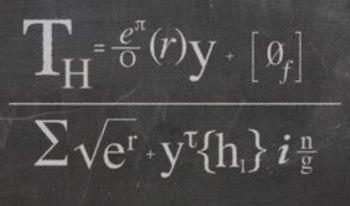So we have seen in the previous post that procrastination is the net result of two primary principles, the tendency to conserve responses toward the end of a time interval (fixed interval effect), and avoidance of difficult emotions associated with or elicited by a given task. So right at this moment, I am procrastinating on working on my tax return for two reasons: They are not due for another month and so I can, and the thought of doing taxes elicits anxiety, repulsion, and some anger.
So, based on the above suppositions, we can identify strategies and approaches to break the pattern of procrastination.
To break up the fixed interval effect, we can do a little contingency management to turn big intervals into smaller intervals. This will maintain more stable and consistent levels of responding over time. So, for example, when I teach college courses (which I haven’t for quite some time), I give a brief quiz once per week based on that week’s reading assignments. I keep the questions fairly simple such that if the student read the material, they would have no difficulty getting full credit. While this is no doubt more work for the instructor, and probably a pain in the ass for the students, it nonetheless does have the effect of incentivizing the task of keeping up with the readings. This in turn makes for more lively class discussion and keeps everybody more engaged. It also reduces the stress of having to cram for the larger tests and thus performance and enjoyability is generally enhanced. So whereas students often gripe about quiz frequency at the outset of the semester, the feedback I receive by the end of the semester has been overwhelmingly positive.
So even when tasks are not externally structured in this manner, we can on our own find ways to break large tasks into a series of smaller and less daunting tasks to maintain more consistent output. So for example, rather than setting a goal of writing a term paper, break this down into smaller tasks….for example selecting a topic, going online or to library to research topic, writing an outline or proposal, writing intro paragraph and so on. Remember, Mt. Everest is climbed one step at a time. When feeling overwhelmed, don’t look at the mountain top. Look at the very next step before you and focus on that. That helps one to stay mindful in present time. It is when we start anticipating the future and lose our center in the present, that we can feel overwhelmed and anxious.
Utilization of the Premack Principle, derived from motivational and learning research, can be very effective. This principle states suggests that one should place high probability behaviors (high desirability) contingent upon low probability behaviors (low desirability). Simply stated this means that one can reward themselves for doing homework by playing video games afterwards. The hey is to hold off on the video games until after the homework is done. While this might seem painfully obvious, it is yet a highly effective mechanism to enhance de3sireable actions.
The most important aspect of breaking patterns of avoidance and procrastination is the ability to identify, label and mindfully view and expose the difficult feelings associated with or elicited by the task at hand. And so one is urged to label the emotions that is conjured by the thought of commencing a given task. Then, one should meditatively sit with those feelings. Let them wash through you without comment or analysis. Label the fear, dread, helplessness, annoyance or whatever feelings arise. Pay close attention to the physical sensations and areas of the body that resonate with the feelings. Let whatever happens happen! As the process unfolds, you will bear witness to a dynamic unfolding of experiences. Other emotions, images, thoughts and memories will surface. Let them come and wash away on their own. Various feelings and sensations will ebb and flow. For those who have been following this blog, you will readily recognize this as Emotional Surfing. For a review, please refer to a previous post on this topic ; https://blackturtlebooks.com/integrative-mindful-exposure-emotional-surfing/
As one proceeds with this technique, and faces the avoided feelings, the likelihood of procrastination will simply fall away since as one learns to lose control, and face the “dark emotions” then there will be no need to avoid and control. True control is not requiring control at all!
So don’t delay…please post your thoughts, comments, experiences and insights!






